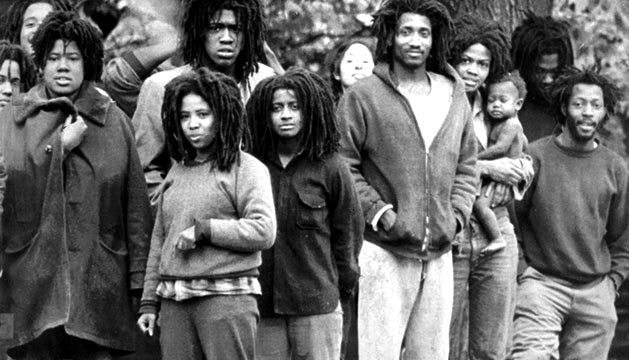
On May 13, 1985, a devastating and unprecedented act of state violence unfolded at 62nd and Osage Avenue in West Philadelphia. The incident—now infamously remembered as the MOVE bombing—resulted in the deaths of 11 people, including five children, and the destruction of 65 homes. Today, 39 years later, the memory of that tragedy continues to haunt the city of Philadelphia and serves as a stark reminder of the consequences of unchecked state power.
MOVE, originally known as the Christian Movement for Life, was founded in 1972 by Vincent Leaphart, who later changed his name to John Afrika. Despite being functionally illiterate, Afrika articulated his ideology through a document known as The Guideline, transcribed by social worker Donald Glassey. The text became the philosophical foundation of MOVE, which embraced a radical commitment to environmental justice, nonviolence, anti-technology views, and a return to a natural, hunter-gatherer existence. Members wore locs, rejected modern medicine and science, and took on the surname “Afrika” as a spiritual and political homage to their ancestral origins.
“All living beings, things that move, are equally important, whether they are human beings, dogs, birds, fish, trees, ants, weeds, rivers, wind or rain. To stay healthy and strong, life must have clean air, clear water and pure food. If deprived of these things, life will cycle to the next level, or as the system says, ‘die’.”
— John Afrika
MOVE’s radical lifestyle and confrontational protests—often amplified by bullhorns and directed at institutions they opposed, such as zoos and city officials—brought them into direct conflict with neighbors and law enforcement. Their presence in the Powelton Village neighborhood of West Philadelphia led to growing tensions, culminating in a shootout on August 8, 1978, during which Philadelphia police officer James J. Ramp was killed. MOVE members have long contended that Ramp was struck by friendly fire, not by one of their own.
In the aftermath, nine MOVE members—Chuck, Debbie, Delbert, Eddie, Janet, Janine, Merle, Mike, and Phil Afrika—were convicted and sentenced to lengthy prison terms as the MOVE 9. Tensions with law enforcement only escalated from there.
On May 13, 1985, the city of Philadelphia attempted to arrest several MOVE members at their Osage Avenue compound. What followed was a catastrophic confrontation. Police engaged in a day-long standoff, eventually culminating in the deployment of an explosive device dropped from a Pennsylvania State Police helicopter onto the roof of the MOVE residence. The bomb ignited a massive fire, and under orders from city officials, firefighters were told to let the fire burn.
Eleven MOVE members, including John Afrika, were killed. Among the dead were five children. Only two survivors—Ramona Afrika and 13-year-old Birdie Afrika—escaped the inferno. Ramona was later sentenced to seven years in prison; Birdie was eventually released, having suffered severe burns.
The state’s decision to use military-grade explosives on a residential neighborhood remains one of the most extreme and controversial acts of domestic policing in American history. No city officials or police officers were ever criminally charged for the attack.
The bombing’s aftermath has continued to echo through the decades, as activists, historians, and survivors have demanded justice and accountability. The event is often cited as a chilling example of how dissent, especially from Black radical communities, has been met with violence by the state.
In his 2015 book Writing on the Wall, edited by Joanna Hernandez, political prisoner and journalist Mumia Abu-Jamal drew a chilling connection between the MOVE bombing and contemporary police brutality:
“I don’t mean bombing people… not yet, that is… I mean the visceral hatreds and violent contempt once held for MOVE is now visited upon average people; not just for radicals and revolutionaries, like MOVE.”
— Mumia Abu-Jamal
Nearly four decades later, the MOVE bombing remains an open wound in Philadelphia’s history—a tragedy rooted in racism, political suppression, and the abuse of state power. As the city and the nation continue to grapple with the legacy of police violence and systemic injustice, the names of those lost on May 13, 1985, must never be forgotten.